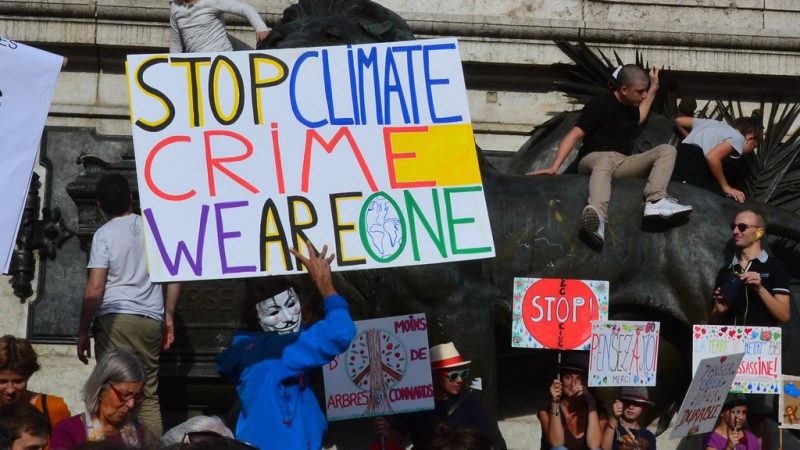'Action on climate change is urgent and needs to be radical. Our 18th-century policy system is failing to respond.'

Molly Scott Cato is the Green Party’s spokesperson on economics finance and was MEP for South West England and Gibraltar between 2014 and 2020. She is a longstanding member of Make Votes Matter and a lifelong campaigner for democracy and a fair voting system’.
Like so many other longstanding climate campaigners, I made the trek to COP26 in Glasgow more in hope than expectation. My hope was kept alive by the extraordinary outpouring of citizen energy for not just climate action but climate justice.
My expectation that the world’s politicians would fail to show the leadership we need was sadly fulfilled. It is this gap between the demands of citizens and the actions of politicians that demonstrates the failure of COP26 as a political failure.
Because there is no question that voters are well ahead of policy-makers in terms of the priority they give to the climate and the radical changes they are prepared to accept. How do I know this? Because Parliament itself ran a Climate Assembly – a representative gathering of 108 citizens – that proposed exactly the sorts of policies we need:
‘Participants in the Climate Assembly UK were strongly for investing in low carbon buses and trains (91 per cent), adding new bus routes and more frequent services (86 per cent) and making public transport cheaper (83 per cent), as well as supporting frequent flyer taxes on air travel, with rates increasing as people fly further and more often (80 per cent).’
My favourite policy – and one favoured by 94% of the British electorate – is a carbon tax, paid by the polluters and imposed at the point of extraction or import of the fossil fuel. It would immediately make everything that produced CO2 more expensive, causing a shift in behaviour and sending a clear signal to the market and to all businesses. Yes, it would increase prices which is why the money raised – we estimate some £80bn per year – should be invested to protect low-income households, by giving them a citizens’ income, insulating their homes, and subsidising public transport.
So guess who doesn’t like this policy? There is a fairly clear answer to what is getting between us and the politicians we need to take action: the fossil fuel lobby. The shocking revelation that the largest delegation at the UN climate talks was actually the fossil fuel industry, with its 500 delegates, only really made transparent what has long been the case. Conservative MPs received £1.3m in donations from the fossil fuel lobby just last year alone. And this kowtowing to vested interests is fostered by our weak democracy where choice is frequently limited to just two parties.
I know that democracy can work. Because European Elections were held under a proportional system I was elected to the European Parliament by just 11% of the voters in South West England and Gibraltar. Once there, I was able to work hard for carbon pricing, to stop the European Investment Bank lending money for fossil fuel infrastructure, and to force Europe’s banks to downgrade the value of their fossil-fuel assets. After Brexit I lost this power and, while I’ve since put myself forward to be an MP, the UK’s archaic First Past the Post voting system makes it almost impossible for Greens to win seats in Westminster. As in Europe, we need Westminster to make votes matter in the form of Proportional Representation.
This isn’t about sour grapes; it is about who is most needed in Parliament right now – a green economist or a lawyer who defends tax avoiders in offshore territories? Geoffrey Cox is as safe as the Bank of England with his 62% majority in Torridge and West Devon. The many thousands of voters in Devon who chose me to represent them in Brussels are unrepresented at Westminster. Just as, after 40 years of voting in UK elections, I have never had a representative at Westminster.
Action on climate change is urgent and needs to be radical. Our 18th-century policy system is failing to respond. The 10% of people who say they want a Green MP today will be forced to vote tactically for one of ‘the two main parties’ when the next general election comes. Britain’s most liked political party will struggle to move beyond our one MP. Both these parties are forced by our supposedly ‘majoritarian’ system to avoid the strong policies we need if we’re to survive the climate emergency.
The Tories defend fossil fuel interests while Labour are afraid to lose the support of energy-intensive industries, unions and workers. In a competitive system, voters would have somewhere else to go to express their demand for urgent climate action. A proportional system would allow Greens into government, as they already are in Scotland and Ireland and are likely to be soon in Germany, to negotiate for stronger climate action from the cabinet table.
Hence, on Saturday 11th December, myself and thousands of others around the country will be joining Make Votes Matter in shining a light on PR, to show that eve in the darkness, we won’t stop until we have equal votes!
The failure to address the climate crisis is primarily a democratic and political failure, and one for which future generations will pay with their lives if we don’t act now to change the voting system, not the climate. Join us!
Left Foot Forward doesn't have the backing of big business or billionaires. We rely on the kind and generous support of ordinary people like you.
You can support hard-hitting journalism that holds the right to account, provides a forum for debate among progressives, and covers the stories the rest of the media ignore. Donate today.



